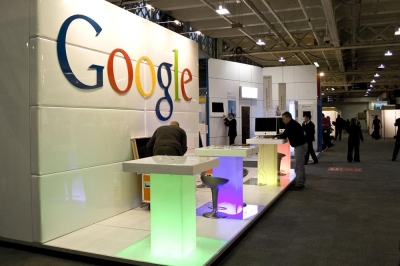Is Gmail Secure? Do Not Expect Privacy of Email Contents From Gmail, Warns Consumer Watchdog

Anyone who has ever sent an email to one of Gmail's 400 million users should not expect Google to have respected the privacy of its contents, asserts the Consumer Watchdog group website, after obtaining a court briefing that the company filed last month.
In a court briefing to dismiss a class action complaint, Google's lawyers argued that per a 1979 court ruling, once individuals passed information to third parties, they no longer could have the expectation that it remain private, analogizing Gmail's system to mail delivery.
"Just as a sender of a letter to a business colleague cannot be surprised that the recipient's assistant opens the letter, people who use web-based email today cannot be surprised if their communications are processed by the recipient's ECS provider in the course of delivery. Indeed, 'a person has no legitimate expectation of privacy in information he voluntarily turns over to third parties'." stated the brief.
In a press release, John Simpson, Consumer Watchdog's Privacy Project director found Google's example twisted.
"Google's brief uses a wrong-headed analogy; sending an email is like giving a letter to the Post Office," said Simpson. "I expect the Post Office to deliver the letter based on the address written on the envelope. I don't expect the mail carrier to open my letter and read it. Similarly when I send an email, I expect it to be delivered to the intended recipient with a Gmail account based on the email address; why would I expect its content will be intercepted by Google and read?"
Google CEO Eric Schmidt has been a strident advocate of transparency and been open about the company's compliance with making consumer data available to authorities.
In 2009, he told a CNBC interviewer that it would likely be in the best interest of individuals to leave their secrets behind before getting online.
"If you have something that you don't want anyone to know, maybe you shouldn't be doing it in the first place," Schmidt said. "But if you really need that kind of privacy, the reality is that search engines, including Google, do retain this information for some time. And ... we're all subject, in the United States, to the Patriot Act, and it is possible that that information could be made available to the authorities."
Google's brief further argued that Google's automated process of scanning email enabled them to provide spam filters and customized ads. Further, the brief maintained, users had agreed to this when they signed up for the service.
In contrast, the opposition contradicted Google's alleged motivations for scanning email, claiming that the company wanted to "to capture the [email] authors' actual thoughts for Google's secret use."
Google argues the terms of service and privacy policy of Gmail lays out their automated processes of scanning email — and by agreeing to use the service, users are bound to those terms.
In an email to Business Insider a Google spokesperson argued that Gmail's security and private features were second to none.
"We take our users' privacy and security very seriously; recent reports claiming otherwise are simply untrue. We have built industry-leading security and privacy features into Gmail -- and no matter who sends an email to a Gmail user, those protections apply," the email stated.




























